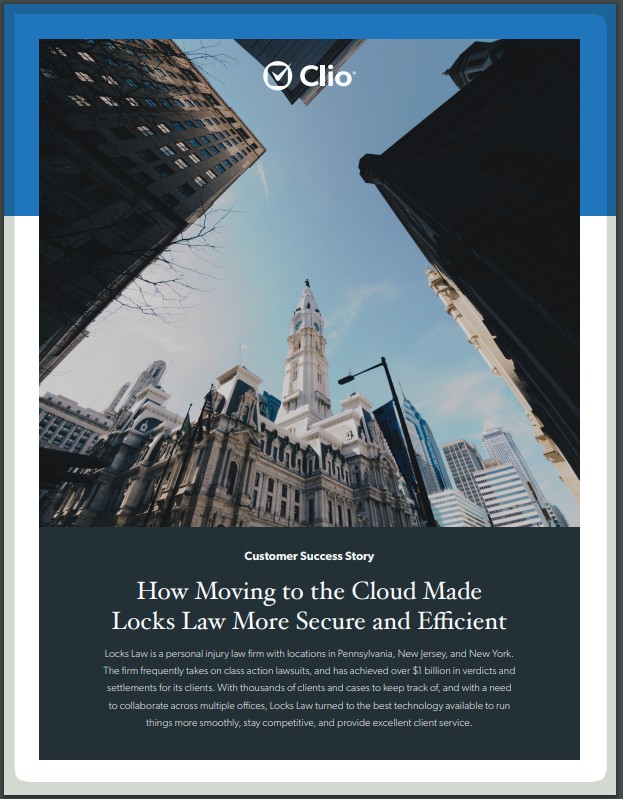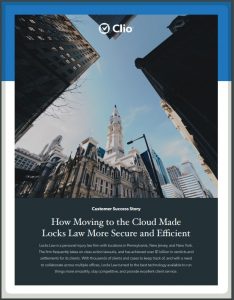 Are bad habits or lax billing practices at your firm impacting your ability to get paid? Read below to get tips to overcome small law firm legal billing challenges.
Are bad habits or lax billing practices at your firm impacting your ability to get paid? Read below to get tips to overcome small law firm legal billing challenges.
Collect a retainer fee up front
Insisting that a retainer fee be paid before work can begin accomplishes three things: 1) It tells clients you are serious about being paid for your work; 2) It establishes a foundation of “good faith” for future payment; and 3) It lets clients know that you are professionally invested in their case.
Be clear about billing and fees
Don’t be afraid to talk about money. Communicating clearly about fees and billing reduces the chances of a “misunderstanding” down the road. Clients don’t like surprises. If unexpected or additional work is necessary, consult with the client to get their approval before starting the work. If clients know what to expect, and discussed fees and billing processes match those expectations, the likelihood of getting paid on time, in full, rises dramatically.
Get it all in writing
You’re a lawyer, so you shouldn’t need to be told the importance of having a signed contract before investing untold hours in a matter. The contract itself should serve as the basis for discussing the billing cycle and fees with the client. Once signed, a contract also provides a basis for legal recourse (e.g., collection of unpaid fees) if the client decides not to pay for your work.
Send regular invoices, at the right time
Late or inaccurate invoicing is a common cause of concern for both lawyers and their clients. Clients don’t appreciate being hit with a hefty bill for two or three months of work, and lawyers don’t appreciate late or incomplete payments. To avoid this problem, send detailed invoices at regular, predictable intervals, preferably on the 5th and/or 20th of the month, between paycheck periods. If this seems like an unattainable goal for your firm, look to legal practice management with time and billing functionality, such as Firm Central, to automate your process so you can easily track time and expenses and quickly create accurate and timely invoices.
Avoid giving discounts
Guessing what a client can afford to pay and adjusting one’s fees accordingly tends to be a losing proposition. It works better to establish a workable set of rates and stick to them. Let clients decide if they can afford you, not the other way around.
Don’t waste time on lost causes
If a client refuses to pay after a reasonable effort on your part to collect, do not continue to work on their case in the hope that they will eventually pay. Explain the situation to the client by phone and in writing, reiterate your payment policy and what they owe, then move on.
Develop open, honest relationships with clients
It’s much harder for people to avoid paying someone they regard as a friend and a confidant, and with whom they feel a personal connection. Lawyer/client relationships are professional, yes, but that doesn’t mean they need to be impersonal. Treat people well and communicate often and, generally speaking, they will return the favor.
Consider fixed price rather than hourly rate
Many clients on a budget fear the potential bloat of hourly billing, preferring instead a flat fee for services. That’s not always possible or even advisable, but maintaining some flexibility when it comes to fee structures can pay dividends. Some flat-fee arrangements can actually be more lucrative than an hourly arrangement, especially if the work is routine and predictable. Hybrid arrangements (e.g., hourly rate + fee cap) can also work.
Be a great lawyer
Do your absolute best for your clients every day, and payment problems tend to take care of themselves. Leverage legal technology across your entire workflow so you can get more done in less time – especially the work you can’t bill to clients or that clients are less willing to pay you for. Clients who trust that their lawyer is working hard on their behalf and can see the results know that whatever you’re charging, it’s worth every penny.
***
 Amy Larson is a Director in Small Law Firm Customer Marketing at Thomson Reuters. She has over 17 years of experience in technology marketing with extensive focus on learning how technology can meet the needs of attorneys. Amy has been involved in numerous product launches throughout her tenure, public relations efforts, interviewing customers and telling their stories, and often writes and distributes information on legal practice management.
Amy Larson is a Director in Small Law Firm Customer Marketing at Thomson Reuters. She has over 17 years of experience in technology marketing with extensive focus on learning how technology can meet the needs of attorneys. Amy has been involved in numerous product launches throughout her tenure, public relations efforts, interviewing customers and telling their stories, and often writes and distributes information on legal practice management.















 Get a better starting point with attorney created legal documents, checklists, guides and more. »
Get a better starting point with attorney created legal documents, checklists, guides and more. » Gain a clear strategic advantage with the fastest answers and most valuable insights. »
Gain a clear strategic advantage with the fastest answers and most valuable insights. » Simplify your matter management, client communication and financial reporting in one seamless tool. »
Simplify your matter management, client communication and financial reporting in one seamless tool. »